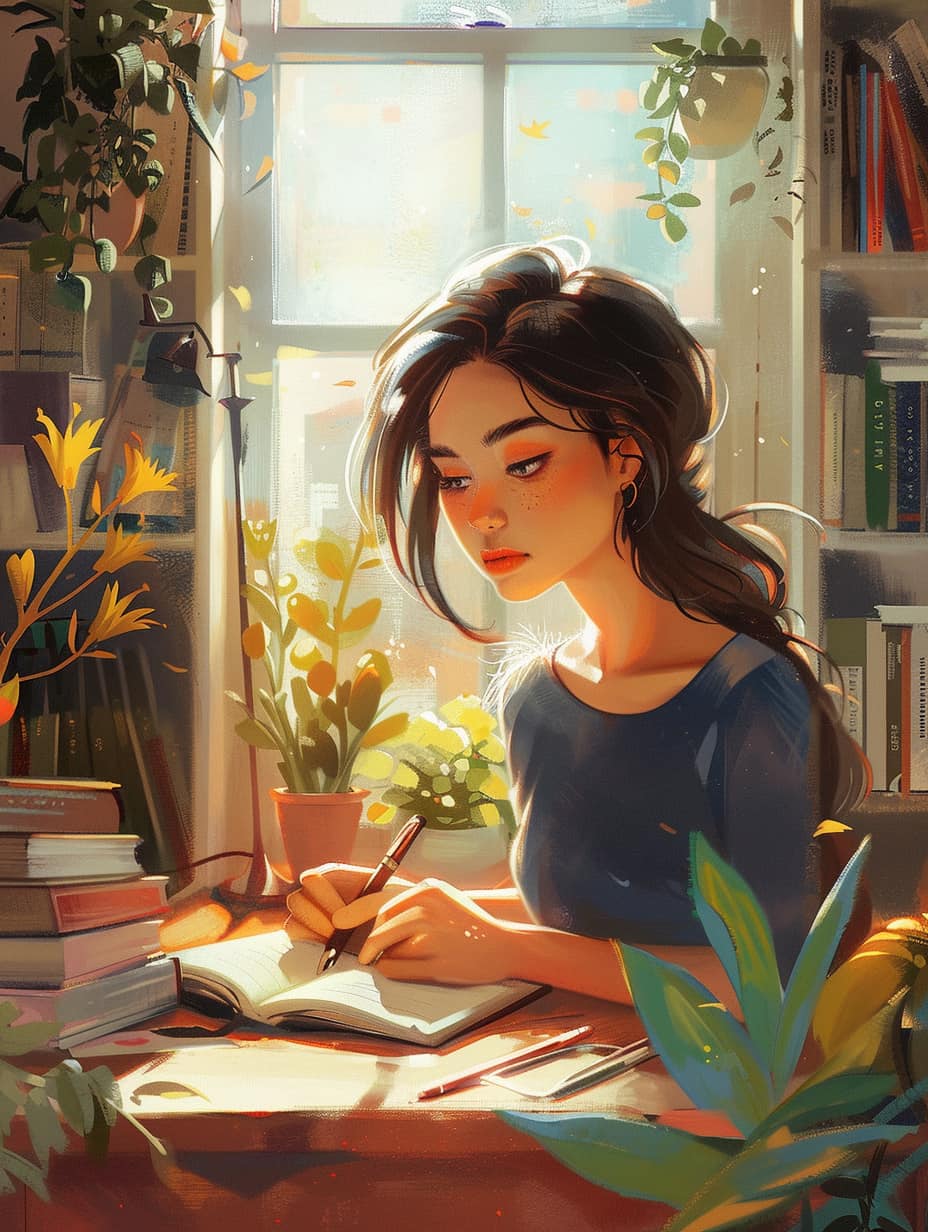小说。

小说:一段穿越中国小说类型的旅程 。
小说 ,通常译为 “小说”或“虚构作品”,涵盖了丰富多样的中国文学传统。它不仅仅是一个简单的类别,更代表着一个由各种类型、时代和风格组成的万花筒,反映了几个世纪以来中国社会和文化的发展变化。本文将探讨中国小说的不同方面,从其卑微的起源到其当代
的影响。
小说的起源:从口头故事到最早的书面虚构作品 。 小说的根源可以追溯到口头传统和民间故事。早在秦汉时期(公元前3世纪 – 公元3世纪),就流传着与历史或神话人物相关的轶事和短篇故事。这些口头流传的故事逐渐被记录下来,孕育了最早的小说形式。
唐朝(公元7世纪 – 10世纪)时期, “传奇” ,字面意思是 “传递奇异” ,开始兴起。这些是用文言文写成的短篇小说,通常带有超自然、浪漫和奇幻的元素。这些故事以更复杂的情节和对人物心理的更多关注为特征,标志着小说发展的重要一步。
长篇小说的鼎盛时期: “四大名著”
明朝(公元14世纪 – 17世纪)见证了长篇小说的鼎盛时期,出现了中国文学的四大支柱——“四大名著” :
- 《水浒传》: 相传为施耐庵所著,这部史诗般的长篇小说讲述了108位绿林好汉反抗腐败朝廷的故事。
- 《三国演义》: 相传为罗贯中所著,这部历史小说描绘了东汉末年的动荡时期以及魏、蜀、吴三国之间的权力斗争。
- 《西游记》: 相传为吴承恩所著,这部神话小说讲述了唐僧师徒四人西天取经的故事,其中最著名的是孙悟空。
- 《红楼梦》: 相传为曹雪芹所著,这部现实主义和心理描写深刻的小说探讨了一个富裕贵族家庭的爱情、竞争和衰落。
这四部作品以其丰富的叙事、深刻的心理描写和文化内涵,深刻地影响了中国文学,至今仍被人们阅读和研究。
小说的演变:从清朝到现代 。
清朝(公元17世纪 – 20世纪)时期,小说类型日益多样化,出现了世情小说、公案小说和讽刺小说。吴敬梓(著有《儒林外史》)和李宝嘉(著有《官场现形记》)等作家通过幽默和深刻的笔触,批判了当时社会的弊端。 20世纪,受西方思想影响的新文化运动深刻地改变了小说。鲁迅等作家以其犀利的小说和创新的风格,批判了封建传统,呼吁中国的现代化。
当代小说:多样性与实验性。
今天,小说继续发展,探索新的主题和叙事形式。我们看到了各种各样的类型,从历史小说到科幻小说,再到侦探小说、爱情小说和社会小说。莫言(2012年诺贝尔文学奖获得者)、余华和阎连科等当代作家在国际上享有盛誉,并为中国小说在世界文坛上的传播做出了贡献。
总结
小说不仅仅是一种文学形式。它是中国历史、文化和社会的反映。从其卑微的起源到四大名著的丰碑,再到当代的实验性作品,小说继续吸引着读者,并为我们提供了独特的视角来看待世界。探索小说是一段穿越人类灵魂深处和复杂历史的迷人旅程。
In english:
Xiaoshuo: A Journey Through the Genres of the Chinese Novel
Xiaoshuo (小说), the Chinese term generally translated as "novel" or "fiction," encompasses a vast and rich literary tradition. More than just a simple category, xiaoshuo represents a kaleidoscope of genres, eras, and styles, reflecting the evolution of Chinese society and culture over the centuries. This article explores the different facets of xiaoshuo, from its humble origins to its contemporary influence.
The Origins of Xiaoshuo: From Oral Tales to Early Written Fiction.
The roots of xiaoshuo lie in oral traditions and folk tales. As early as the Qin and Han dynasties (3rd century BCE – 3rd century CE), anecdotal accounts and short stories circulated, often related to historical or mythological figures. These orally transmitted narratives were gradually written down, giving rise to the earliest forms of xiaoshuo.During the Tang dynasty (7th – 10th centuries), chuanqi (传奇), literally "transmitting the strange," emerged. These were short stories in classical prose, often imbued with supernatural, romantic, and fantastical elements. These narratives, characterized by a more elaborate plot and increased attention to character psychology, marked an important step in the development of xiaoshuo.
The Flourishing of the Long Novel: The Four Great Classical Novels.
The Ming dynasty (14th – 17th centuries) witnessed the golden age of the long novel, with the emergence of the "Four Great Classical Novels" (四大名著), cornerstones of Chinese literature:
- Water Margin (水浒传, Shui Hu Zhuan): Attributed to Shi Nai'an, this epic novel recounts the adventures of 108 outlaws who rebel against the corrupt imperial administration.
- Romance of the Three Kingdoms (三国演义, San Guo Yan Yi): Attributed to Luo Guanzhong, this historical novel depicts the tumultuous period of the late Han dynasty and the struggle for power among the three kingdoms of Wei, Shu, and Wu.
- Journey to the West (西游记, Xi You Ji): Attributed to Wu Cheng'en, this fantastical novel tells the story of the Buddhist monk Xuanzang's pilgrimage to India in search of sacred scriptures, accompanied by his disciples, including the famous Monkey King.
- Dream of the Red Chamber (红楼梦, Hong Lou Meng): Attributed to Cao Xueqin, this realistic and psychological novel explores the loves, rivalries, and decline of a wealthy aristocratic family.
These four works, with their rich narratives, profound psychological depth, and cultural significance, have profoundly influenced Chinese literature and continue to be read and studied today.
The Evolution of Xiaoshuo: From the Qing Dynasty to the Modern Era.
During the Qing dynasty (17th – 20th centuries), xiaoshuo saw a diversification of genres, with the appearance of the social novel, the detective novel, and the satirical novel. Authors such as Wu Jingzi (with The Scholars) and Li Baojia (with Officialdom Unmasked) criticized the ills of their contemporary society through often humorous and incisive narratives.In the 20th century, the New Culture Movement, influenced by Western ideas, profoundly transformed xiaoshuo. Writers such as Lu Xun, with his sharp short stories and innovative style, criticized feudal traditions and called for the modernization of China.
Contemporary Xiaoshuo: Diversity and Experimentation.
Today, xiaoshuo continues to evolve, exploring new themes and narrative forms. There is a great diversity of genres, ranging from historical fiction to science fiction, detective novels, romance novels, and social commentary. Contemporary authors such as Mo Yan, the 2012 Nobel laureate in Literature, Yu Hua, and Yan Lianke have achieved international acclaim and contribute to the global recognition of xiaoshuo.
In Conclusion:
Xiaoshuo is more than just a literary form. It is a reflection of Chinese history, culture, and society. From its humble origins to the monumental works of the Four Classics, and through contemporary experimentation, xiaoshuo continues to captivate readers and offer a unique perspective on the world. Its exploration is a fascinating journey through the intricacies of the human soul and the complexities of history.
